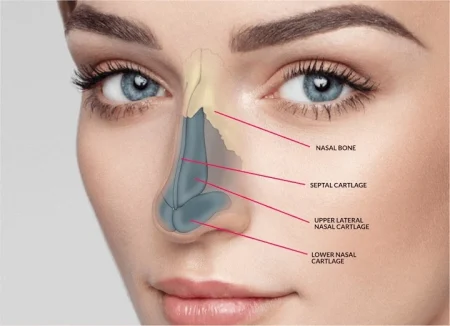There are some who wake up upon hearing a noise, and then there are those who sleep through everything—alarms, loud music, or even shaking. These people are known as extremely heavy sleepers. Although a heavy sleeper is harmless, in certain situations it causes problems in life, security, and health.
If you are such a heavy sleeper that no one can ever wake you up, or your family member has this issue, you must know the causes and remedies of heavy sleeping.
What Is an Extremely Heavy Sleeper?
A heavy sleeper is a person who sleeps so intensively that it is very hard to wake them up. Despite high alarm settings, loud yelling, or hitting the body, they could not be awakened. They are dizzy, confused, or take a very long time to fully wake up when waking up.
This is not normal deep sleep. Though all human beings do experience a certain amount of deep sleep, heavy sleepers do go through this period for a lot longer or with more frequency.
Why Are Some People Heavy Sleepers?

These are some of the reasons why a person sleeps extremely heavily:
- Genetics: There are some people who are born to sleep heavier than other individuals.
- Sleep Cycles: Heavy sleepers will spend longer in the slow-wave sleep (deep sleep cycles).
- Brain Activity: Heavy sleepers’ brains are more active to offset the noise.
This is a good thing, but not necessarily. There are certain things that go with being a very heavy sleeper that aren’t so great.
Issues That Come with Being a Heavy Sleeper
While oversleeping is common, sleeping too much some of the time can be an issue.
Hard to Wake
Most heavy sleepers have a hard time waking up early even after using several alarm clocks. This results in late arrival at school, work, or appointments.
Safety Concerns
Not being awakened by alarms, smoke alarms, or emergencies will be fatal. An example is that a heavy sleeper will fail to hear a fire alarm or the doorbell.
Daytime Sleepiness
Heavy sleepers even feel exhausted in the daytime following prolonged sleep. It may be a sign of bad quality sleep or illness.
Effect on Daily Life
Excessive sleeping results in neglected responsibilities, tensions, and irritability on the part of the sleeper as well as his/her family.
How to Know If You’re a Super Heavy Sleeper
The following are some indicators that you are most likely a very heavy sleeper:
- You require more than one alarm and still have trouble waking up.
- Friends or relatives complain that it is virtually impossible to wake you up.
- You sleep through sounds which easily wake others.
- You wake up drowsy or very tired.
- You oversleep hours occasionally without even noticing it.
If all of the above symptoms sound familiar, then perhaps it would be best to explore further your sleeping patterns.
Tricks to Wake Up Heavy Sleepers

The great news is that there are several tricks which may make waking up easier even for heavy sleepers.
Also Read: Functional & Integrative Medicine Solutions for Holistic Care
Experiment with Louder Alarms
- Try alarm clocks with extremely loud bells, flashing lights, or vibrations.
- Place the alarm a distance away from where you sleep so that you will have to stand up and turn it off.
- Try applications that make you solve a puzzle or scan a barcode to turn off the alarm.
Improve Sleep Hygiene
Good sleeping and waking routines will improve sleeping and simplify getting up:
- Retire and wake up at the same hour every day.
- Avoid screens (phones, televisions) an hour or so before bed.
- Leave your room dark, cool, and quiet.
- Avoid caffeine or heavy meals close to bedtime.
Get More Natural Light
Sunlight exposure during the morning resets your body clock. Open the curtains or take a break outside shortly after waking up.
Regular Exercise
Everyday routine can also improve sleeping routines and make it easier to get up from bed.
Be Woken Up by a Friend
Where feasible, ask a family member or roommate to wake you up in the morning until such time as you can establish healthier rising routines.
When to See a Doctor
Somebody sleeping too much is at times an indicator of a clinical illness and not a routine. You should see the doctor if:
- You tend to sleep more than 10–12 hours but still feel tired.
- You experience symptoms of sleep apnea, including excessive snoring or gagging during the night.
- You suddenly fall asleep during the day.
- You feel extremely tired despite a good night’s sleep.
Physicians can prescribe sleep studies in an effort to test for narcolepsy or sleep apnea. Treatment most often enhances the quality of sleep and daytime functioning.
The Good of Being a Heavy Sleeper
It’s not all terrible—there are some good things about being a heavy sleeper:
- You are less disrupted by small noises.
- You may get more restorative sleep, which aids memory and recovery.
- You may be better at coping with stress because deep sleep is beneficial to mental wellbeing.
The key is to get to the point where you actually do get decent-quality sleep but can wake up safely and on schedule.
FAQs About Very Heavy Sleepers
Is heavy sleeping normal?
Yes, some just sleep more heavily by nature. Only then is it an issue if it impacts everyday functioning or safety.
Do heavy sleepers dream less?
No. Heavy sleeping occurs mostly during REM sleep, and heavy sleepers do get that stage of sleep as well.
Can heavy sleeping be wiped out by training?
With regular habits, louder alarms, and healthy living, most are able to wake up better.
Are children heavy sleepers too?
Yes, most children are natural heavy sleepers, but most of them outgrow it as adults.
Is heavy sleeping unhealthy?
Not really. It becomes unwholesome if you sleep too much, overslept the alarm, or drowsiness even after sleeping.
Last Thoughts
Heavy sleep is a blessing and a curse. Deep sleep is restorative and within normal limits, but makes daily hassles and even potentially life-threatening if waking is difficult. Heavy sleepers can get better at waking up on time if they realize why they are such heavy sleepers and adopt good habits.
If you or the one in your environment are sleeping so soundly that it has been interrupting the regular routines, then it would be helpful to change habits of living, use louder alarms, and consult the doctor if needed. Mimicking proper habits, though, can enable you to couple deep, wholesome sleeping with an uncomplicated morning routine.








